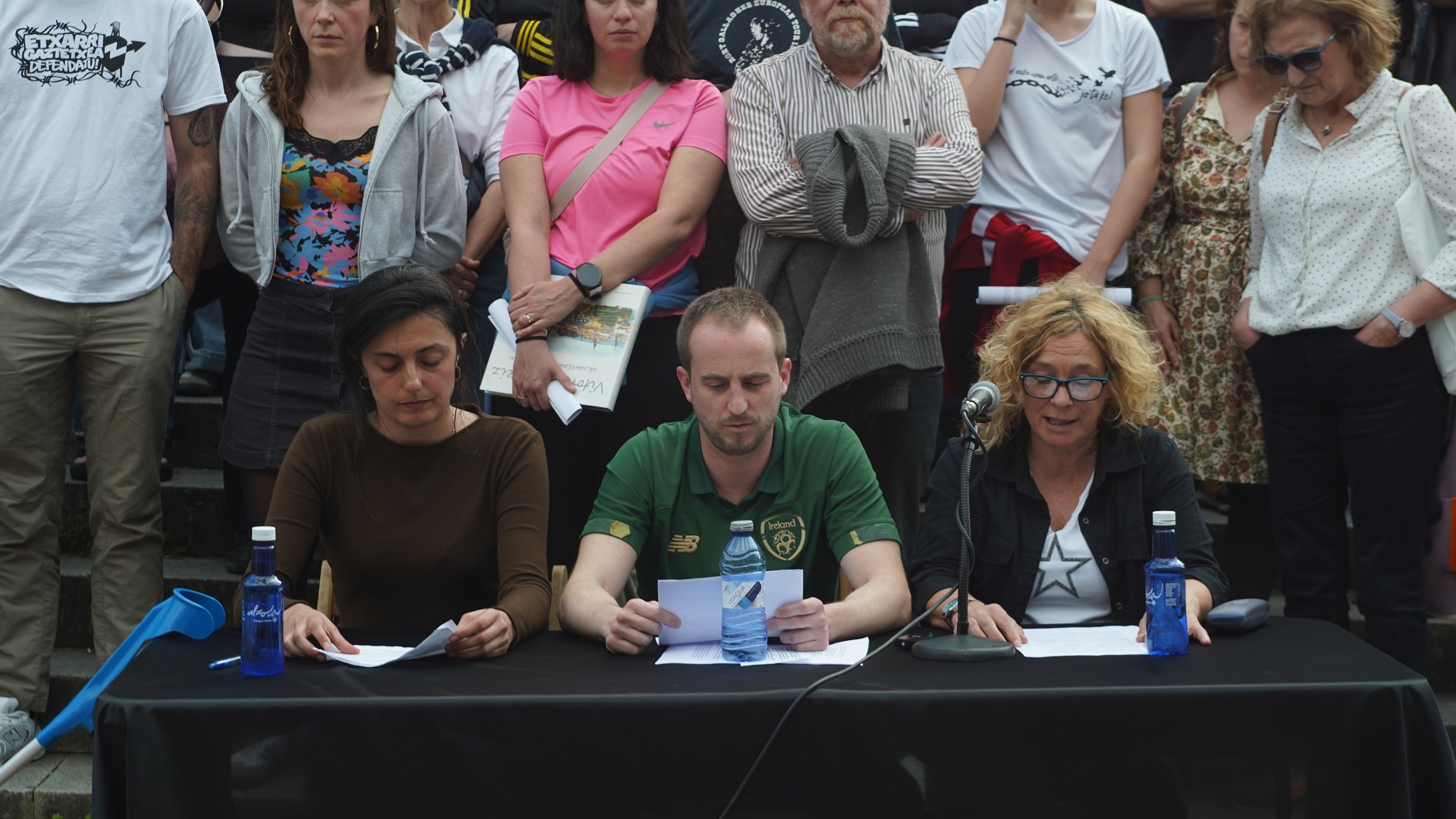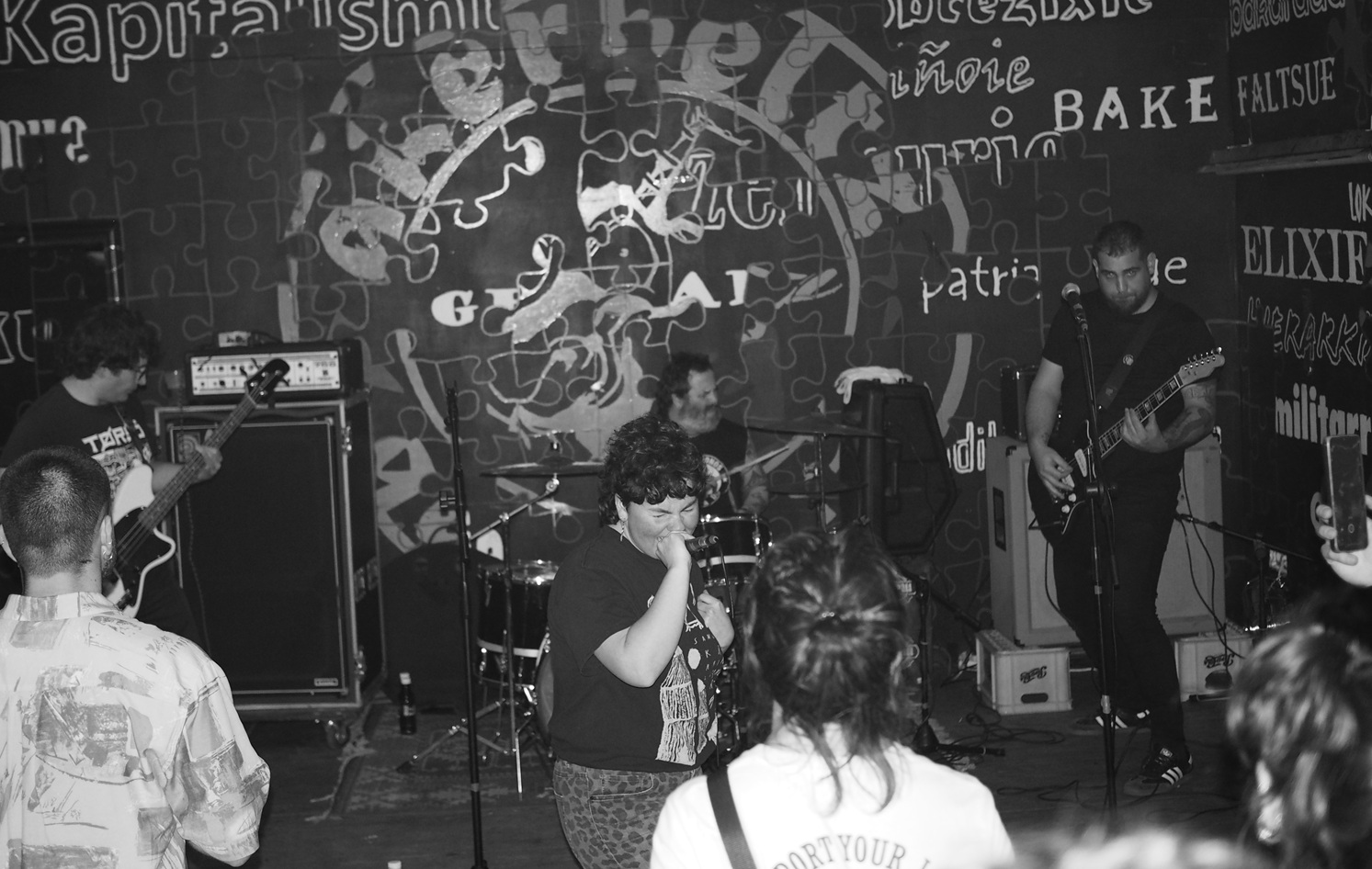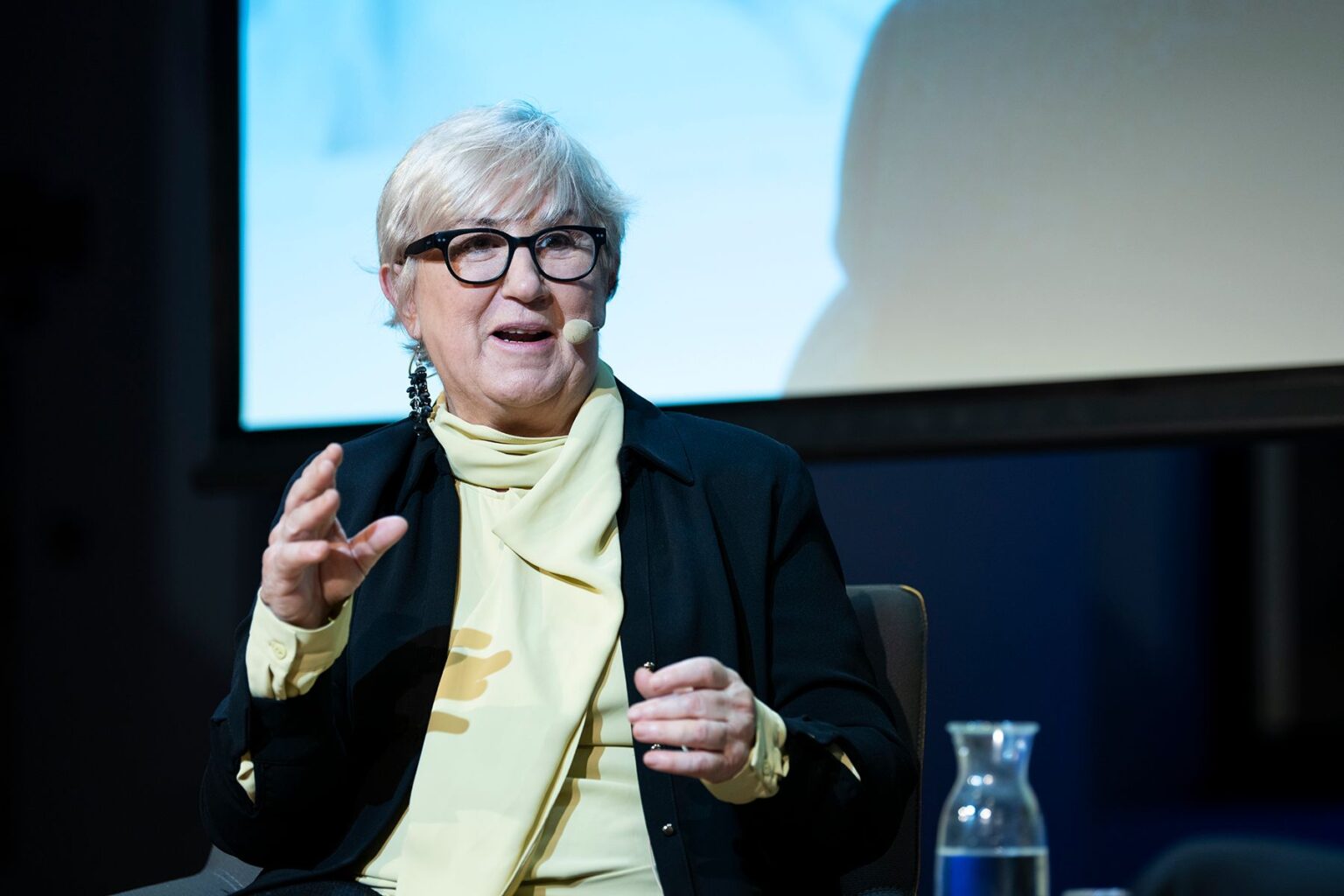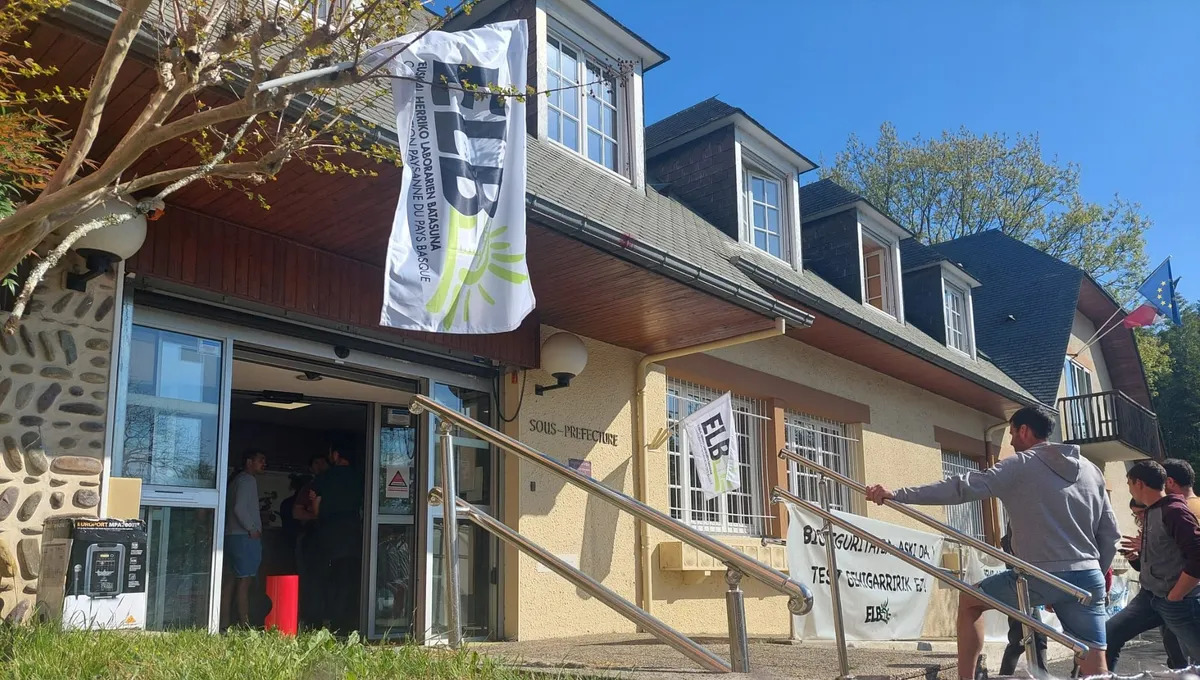Singing in English because the style requires it
- Why do Basque music groups sing in English? (We will leave it to Spanish or French for another time). We asked Berako Sexty Sexers, Ama Say from the Left of Bilbao and Jon & Sugramas from Elgoibar and Azpeitiko for their opinion and they told us about their musical and linguistic journey. Mikel Larrache, of Sexty Sexers, tells us that journalists quarantine music groups if they sing in English and give them a Basque label if they speak Basque. On the other hand, we pay little attention to the lyrics of songs.
About Jon & Sugramas: “Some styles are linked to a language”

Jon Gurrutxaga (standing) is a singer and lyricist of the rock blues band Jon & Sugramas, who performed in Arima Negra. He then worked in Basque, and now, for the first time, on his last album, Jon & Sugramas, they have done it in English. When I was little, I didn't know English, but I loved the Beatles. He pronounced British English in his own way and sang intensely. Now she knows English and has satisfied her desire to work in that language. With the reasons for creating and singing in English going up and down, we have highlighted three ideas: making singing in English a habit, phonetics, and having opportunities abroad. Gurrutxaga highlights the first two and leaves the third, in fact, at the third level. The singer listens to 95% of the music in English, since the musical styles that he likes (classic rock, blues rock, blues...) are born that way. He is very familiar with this language, English is not a stranger to him. On the one hand, and on the other hand, the way he does it to the ear. “You can make rock and blues believable in Basque, and I think we achieved that with Arima Negra. But people tell you that English is better in your ear. Perhaps I should say this phrase in quotation marks, I mean that it is not the same to listen to trikitia in Basque or Japanese. To do Trikitia mixed with something else is one thing, and to do Rock Blues, Classical Rock in Basque.” In Prague, for example, he listened to a jazz pop group in English and Czech, and in the latter language he enjoyed listening to the songs. On the other hand, Gurrutxaga has listened to the rock blues (the style he cultivates) in French and did not like it; “some styles are linked to a language, they must be in English”. This does not mean that it cannot be done in Basque, but it would be more difficult to go abroad, for example. Well, among the reasons for singing in English, what Gurrutxaga left for the end. It is more important to do the songs well than to look abroad. But Gurrutxaga will tell you that you are not being cared for outside in a language other than English: “If you do the blues in French in England, they’ll kick you up, and if you do it in English in Germany, they’ll understand you. You can speak English all over the world.”
The Sexty Sexers. “We carry English in the DNA”

The lyricist of the group, Mikel Larrache (first from the right), tells us that if we ask why they do it in English as Basque musicians, all the groups will answer the same question: that 95% of this musical style is heard in English. “This marks it enormously, a type of music is associated with some phonetics or sounds. The English language is there, we have it in the DNA.” An example of this is the curiosity he has told us: In Barcelona, two bands played in Basque, one was Sexty Sexers. After listening to them both, a listener approached Larrache and asked him why he sang in English.
The band continued their musical career until their last album. In HeroMantra, they have used more English than ever before. Larrache explained to us how it was a step towards English. The linguistic journey has been instinctive. During the performance of the song, with the lyrics about to be created, the rehearsal uses sounds and screams of no meaning, all English. Larratxe’s job is to turn these meaningless screams into sensible Basque lyrics. Well, on their last album, they jumped to English instead of Basque. Larrache believes that not all languages have the same characteristics, and for example, Spanish, compared to Basque, does not perform well in their musical style, which is rock and roll. We’re talking about making one language or another right in the ear, but doesn’t English open doors abroad? “Choosing one language or another along the lines of whether you are going to succeed is not common, dealing with this type of coldness is not logical.” One
thing is deciding to sing in English and the other is the level of English. How do Basque music groups deal with what is often a third language? “Rock and roll has never been an incredible paradigm of literature, it doesn’t require an incredible level of language.” And we talked about the importance or irrelevance of the message. Larrache, for example, remembers Bob Dylan’s concert in San Sebastian; how many people on the beach and how many would understand what he sang. “It could happen that the band sings in English and the drummer doesn’t know English.”
Mother Say: “The phonetic game is our brand”

Bilbo The linguistic evolution of this left-wing group has been largely the reverse of that of the Sexty Sexers. They started singing in English and then they started singing in Basque, mixing the two languages in the same song. The Basque language arrived after the group’s Getaral and Ibon Bilbao brothers became Basques. Getaral Bilbao (second from the left, and one of the group’s lyricists) tells us that the “fault” of the leap to Basque in music is that of his former partner Karlos Alonso. He encouraged the brothers to learn Basque and then they started doing tests, “the aim was to make a phonetic game between English and Basque.” Was phonetics the most important thing? We asked him: “The message is very important to us, words.” You can't put one on top of the other. When Bilbao says phonetic play, it does not mean to limit itself to two languages, which, in addition to Basque and English, also use words in French and Spanish, “and could even use Chinese”. For Bilbao, mixing the two languages is special, “this phonetic game is our flavor, our brand”. It cannot be said that
Ama Say uses English to presumably work abroad, since they have started in English and then made their way to Basque: “We don’t use English for that, we do what we want.”
Goizez Nafarroako zubirik esanguratsuenak jendez beteko ditu Sorionekuak dinamikak. Arratsalderako mobilizazio herritarra deitu dute Iruñeko Kostarapea parketik Alde Zaharreko Takonera parkeraino.
EAEko udal legearen euskararen arloko zenbait artikuluren aurkako epaia eman zuen Justizia Auzitegi Nagusiak 2023an, eta orain Gorenak berretsi du. Eusko Jaurlaritzak ez du garaiz aurkeztu epaiaren aurka egin zezakeen helegitea.
Lekeitioko Udalak jakinarazi du bandako zuzendariak tratu txarrak eman izana jaso dutela, hainbat testigantzaren bidez. Udalak azaldu du, Eusko Jaurlaritzaren aholkuak jarraituta, hainbat pauso eman dituztela, besteak beste, zuzendariarekin hitz egin, eta testigantzak jaso... [+]
Zibilentzat antolatutako txangoak igande honetatik aurrera egin ahal izango dira, printzipioz astebetez, eta egunero bi ateraldi antolatu dira. Sarrerak berehala agortu dira.
Until now we have believed that those in charge of copying books during the Middle Ages and before the printing press was opened were men, specifically monks of monasteries.
But a group of researchers from the University of Bergen, Norway, concludes that women also worked as... [+]
Florentzia, 1886. Carlo Collodi Le avventure de Pinocchio eleberri ezagunaren egileak zera idatzi zuen pizzari buruz: “Labean txigortutako ogi orea, gainean eskura dagoen edozer gauzaz egindako saltsa duena”. Pizza hark “zikinkeria konplexu tankera” zuela... [+]
Ospitaletik irten eta berehala prentsaurrekoa eman du Iker Aranak, Errekaldeko gaztetxearen aurrean. Gaztetxearen desalojoan ertzainek "neurrigabeko indarkeria" erabili zutela salatu du, eta salaketa hurrengo egunetan aurkeztuko du.
Aposapo + Mäte + Daño Dolor
Noiz: apirilaren 5ean.
Non: Markina-Xemeingo Akerbeltz Gaztetxean.
---------------------------------------------------------
Erosketetarako orgatxoa barazkiz beteta egin dut gaztetxerako bidea, eta haiek mozten eman dugu iluntzea... [+]
Gipuzkoako Euskal Pilota Federazioak 100 urte betetzen ditu aurten. Ospatzeko antolatu dituen ekitaldien artean dago apirilaren 12an Zumarragan egingo den bertso saio berezia. Pilotari bat arituko da gai-jartzen, eta pilotarekin harremana duten Gipuzkoako lau bertsolari kantuan... [+]























